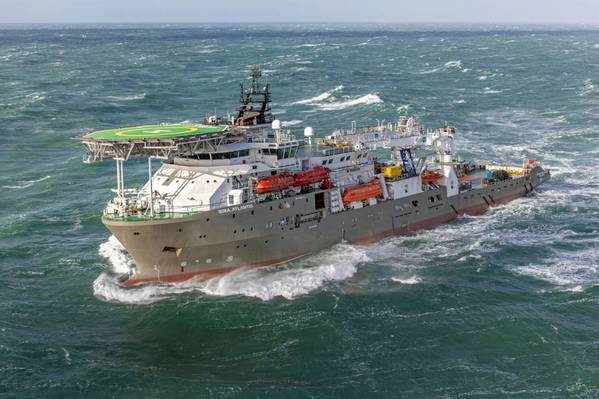
Bakker Sliedrecht has implemented energy storage systems (ESS) on board of the two Boskalis diving support vessels - BOKA Atlantis and BOKA Da Vinci.
The installation of the ESS reduces the vessels’ fuel consumption and associated carbon dioxide and nitrogen oxide emissions by an average of up to 20%, according to Bakker Sliedrecht.
The systems also provide a power supply and energy storage facility while the vessels are docked and contribute to quieter and more efficient operations offshore.
Both vessels were converted at the Boskalis Service Center quay in Rotterdam.
Bakker Sliedrecht’ scope of supply included a battery pack, a power converter system, transformer, switchboard panels, ESS control system with several functionalities such as spinning reserve, peak shaving, ramp rate control, state of charge management and battery management.
Also, system design, engineering, production, physical and functional integration and commissioning were included.
“We managed to limit the out-of-service time of these vessels, from arrival of the vessels up to completed sea trials and class approval, to less than two months for the whole ESS implementation,” said Andy Waterstreet, Project Director at Bakker Sliedrecht.
Further reduction of fuel consumption, emissions and running hours was achieved by optimizing the power plant configuration.
Although these vessels are originally not equipped with Bakker Sliedrecht’ provided diesel-electric power plant, both physical and functional integration went smoothly.
“For DP-2 vessels performing very safety critical operations like these vessels, redundancy and safe operations are key in every design choice.
“This was achieved by early involvement of and close cooperation with DNV-GL, execution of extensive failure mode effect analysis and sea trials,” said Edwin de Koning, Account Manager at Bakker Sliedrecht.